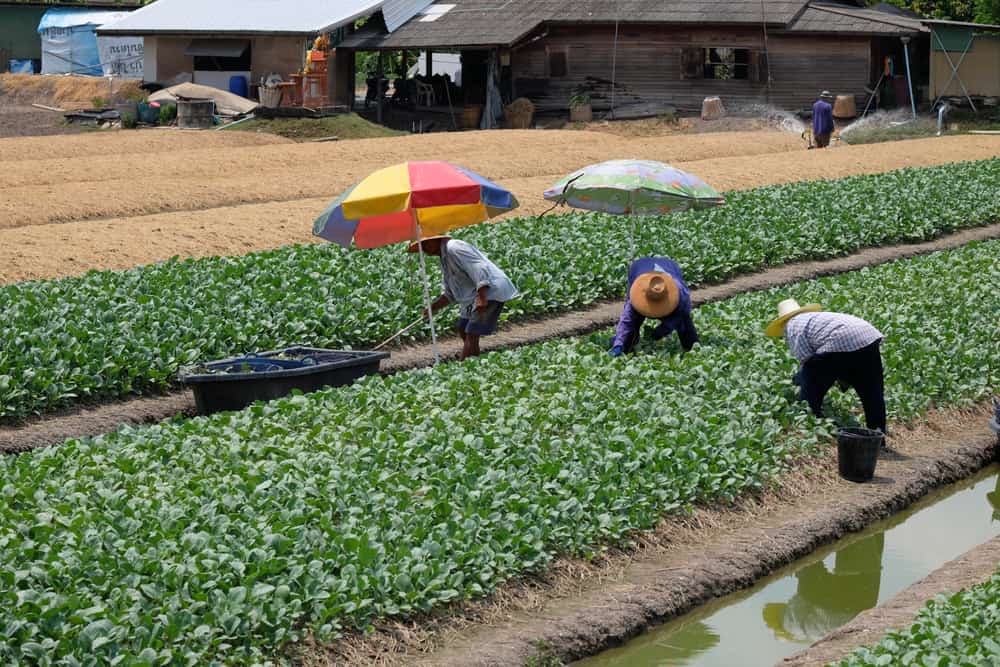Part of the Food Policy Snapshot Series
Policy name: Chiang Mai urban farm
Overview: A landfill in Thailand has been converted into an urban farm to feed the hungry.
Location: Chiang Mai, Thailand
Population: 0.2 million
Food policy category: Sustainable agriculture, food security
Program goals: To increase food security in northern Thailand.
How it works: An architectural firm, Jaibaan Studio, has obtained approval from the governor of Chiang Mai to create an urban farm on a 4,800 square meter plot of land that had been used as a landfill for more than 20 years.
After clearing out the garbage, leveling the soil, and adding new topsoil to create gardening beds, they began a campaign to raise awareness about the farm and to request donations in the form of plants, seeds, gardening tools, and fertilizer. They also received a small grant from the Community Organizations Development Institute (CODI), which was used to create a bamboo structure for meetings and farmers’ markets.
When the land was ready for planting and all necessary equipment had been gathered, Jaibaan Studio and CODI invited community members to plant the seeds. Regular events were scheduled to allow community members of all ages and backgrounds to work in the garden.
Community members have signed up to care for the garden, and families in need are able to harvest and take home any plants that they want or need.
Progress to date: The idea to start an urban farm at the landfill site arose in March 2020. The first public event was in June, and by July, many fruits and vegetables were already growing and community members were taking home crops to feed their families. In September, a workshop was held to train those who wanted to become a permanent part of the farming team and to create a plan for managing the farm. In November, the mayor of Chiang Mai gave his permission to continue using the land for community farming and pledged his support for the project.
Why it is important: Chiang Mai’s economy is largely dependent on tourism, but the COVID-19 pandemic forced Thailand to close its borders to tourists and left many Chiang Mai residents without jobs or any source of income.
Because of pandemic-related disruptions to the worldwide food system, global food insecurity increased by approximately 82 percent in 2020. Community and urban gardens are a low-cost way to increase access to nutritious fruits and vegetables in areas where food insecurity is prevalent.
Program/Policy initiated: The urban farm opened to the public in June 2020.
Point of contact: N/A
Similar practices: While urban farms are becoming more common around the world, it is unclear whether any others were developed specifically in response to food insecurity resulting from the COVID-19 pandemic.
Evaluation: While specific numbers have not been published, the Chiang Mai farm is said to have helped increase food security among local residents.
Learn more:
- COVID-19 Makes a Strong Case for Urban Farming (Bioversity International)
- ‘If All the Stores Close, We Need Food’: Community Gardens Adapt to the Pandemic (New York Times)
- Impact of a Community Gardening Project on Vegetable Intake, Food Security and Family Relationships: A Community-based Participatory Research Study (Journal of Community Health)
- Urban Vegetable for Food Security in Cities. A Review (Agronomy for Sustainable Development)
- What Gardens Grow: Outcomes From Home and Community Gardens Supported by Community-Based Food Justice Organizations (Journal of Agriculture, Food Systems, and Community Development)
References:
- 28 Inspiring Urban Agriculture Projects
- Chiang Mai Suffers B100bn in Lost Tourist Revenue (Bangkok Post)
- Food Security and COVID-19 (The World Bank)
- Rubbish Dump Turned Lush Urban Farm (International Institute for Environment and Development)
- Thai Landfill Turned Into Urban Farm to Feed Poor During Pandemic (Reuters)


